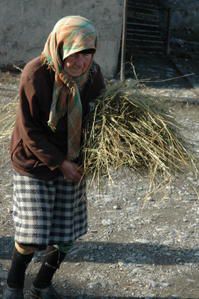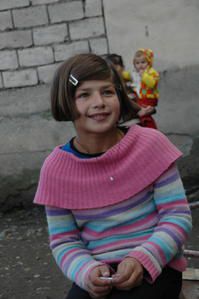Story of Georgia 4: the future is neutrality more than NATO?
(B2)Georgia will not join NATO. It's clear. it's not for tomorrow. Not only for geostrategic or political reasons (several Member States such as Germany,
France, Italy, Belgium, Spain are against it... that's a lot!). But also quite simply because the primary conditions for joining the Euro-Atlantic organization have not been met. The rule of law does not work perfectly, a diplomat in Tbilisi explains to me. There are about 300 prisoners who can be described as "opinion" in Georgian prisons. Justice is quite random. Freedom of the press is a facade; television and the press in Georgian conscientiously repeat the word of power. Some deaths of opponents remain mysterious and unsolved. Torture and ill-treatment continue to be practiced without any real sanction. Police brutality continues. THE amnesty international report is eloquent on these points. The forthcoming meeting of the Atlantic Council on December 2 and 3 could therefore confirm that it is urgent to wait for Georgia to sign the Membership Action Plan (MAP). (The United States has just confirmed this fact by the voice of Condoleezza Rice, the Secretary of State).
The desire for revenge drives the leaders, not the population. The historical memory of the victorious Georgian reigns while the reality is different. The country has often been under Russian influence. And its independence is recent. The desire for revenge still seems to animate the Georgian government. He leads the rearmament and re-equipment of the Georgian army, the reconstruction of barracks (photo) with American support. The American Embassy in Tbilisi is a real base. Built at the exit of the city, it extends over several hectares. And has nearly 500 agents! In the population, on the other hand, I did not feel this will to do battle. Even among the police officers encountered. There is rather the desire to put an end to years of conflict, and of bad economic and social situation.

Georgian army barracks near Gori © NGV
The situation seems blocked between Russia, which fears an extension of NATO on its doorstep. And Georgia, which fears a new invasion, or a slow nibbling of the Russians and their
allies (a little turbulent), Abkhazians and Ossetians. Joining NATO would bring nothing more. It would further tense the situation, perhaps provoke a new intervention by the Russians, or the multiplication of incidents, knowing that few allies of the Atlantic Alliance want to come and die for Georgia. The local president has probably forgotten a precept: NATO has never intervened frontally - on European territory - against the Russians.
Europeans should - in my opinion - be vigilant. By avoiding funding, directly or indirectly, the - excessive - rearmament of the Georgian army. By demanding very clear democratic progress from them. Avoiding being fooled by vague promises as before. By also warning their Georgian friends that the repetition of incidents and a new provocation - like the one that took place on Sunday with the Polish president - will lead to retaliatory measures. A new policy must be put in place for Georgia. Submission to the Russians is not acceptable. But neither does the permanent tension. Why not invent something else... Especially with Georgia's neighbors: Chechnya is only a few tens of kilometers away, Iran is not far. The country also has common borders with the two enemy brothers - Azerbaijan and Armenia - who are fighting over Nagorno Karabakh, it would be in everyone's interest - Europeans, Georgians and Russians, to have this corner of the Caucasus little appeased... The Europeans can no longer escape their responsibilities as they did in the past!

Europe Square in Tbilisi - in the distance the presidential palace © NGV
What future then for Georgia? Personally, I see only one: the proclamation of neutrality. At the end of this trip, I am convinced, Georgia will have nothing to gain by joining NATO, if not the perpetuation of a conflict, it must choose peaceful relations with its neighbors... And the Europeans must put capital pressure on Russia to respect this choice (see also V. Havel and R. Sikorski). Neutrality does not prevent a strong army, nor to participate - in an ad hoc way - in various alliances. The model in this case could be what happened in Austria or Finland after the Second World War. Both proclaimed a kind of non-alignment which allowed them one to see the Russian troops withdraw from their territory, the other to pacify its relations with its powerful neighbour. This is probably not ideal for a proud and touchy people like the Georgians. But it's better than this permanent insecurity which prevents any desire for economic and democratic development...


Will this young girl have to endure as much pain and conflict as this old woman?
This is the question that Georgian, Russian and... European leaders must ask themselves.
(NGV)

